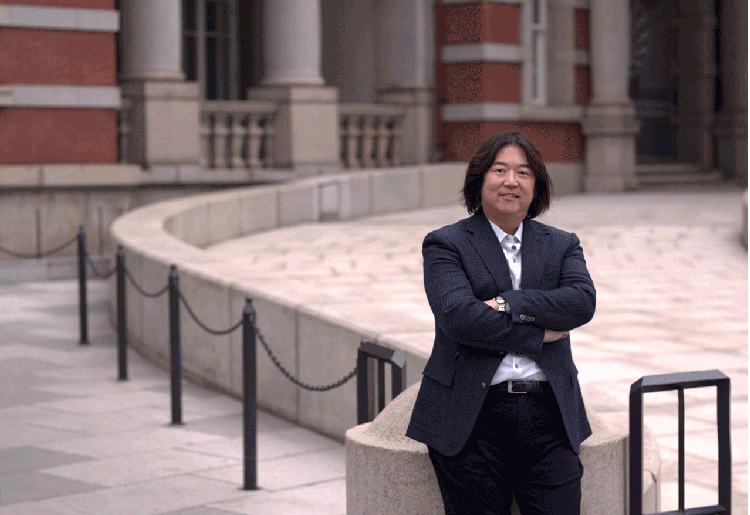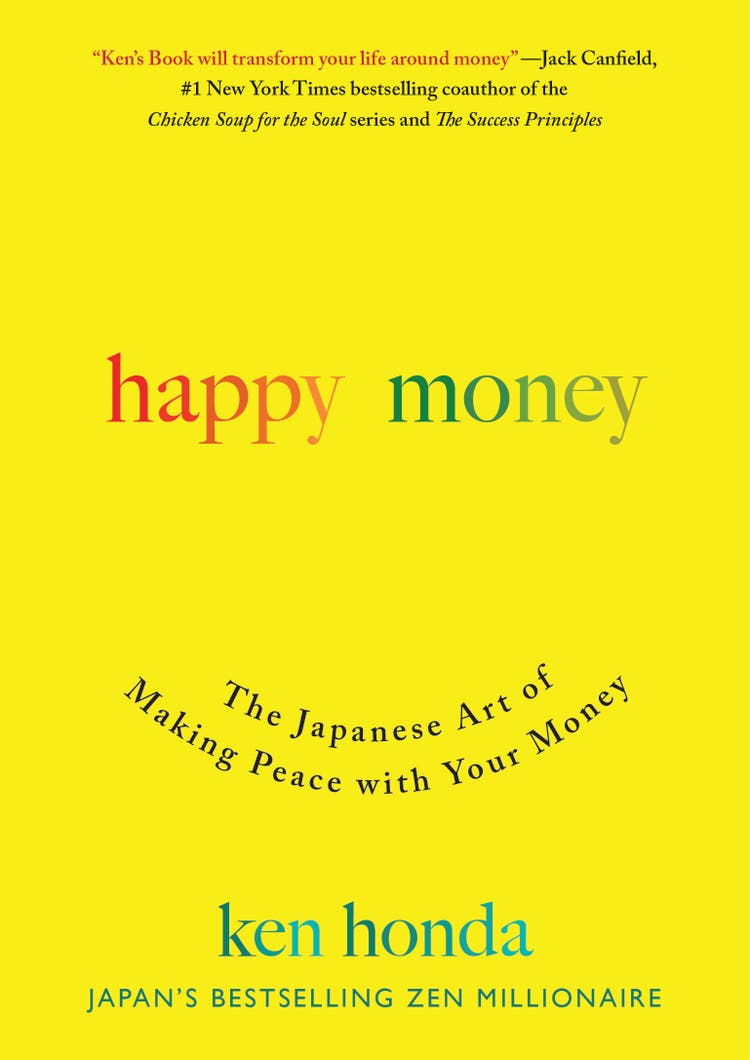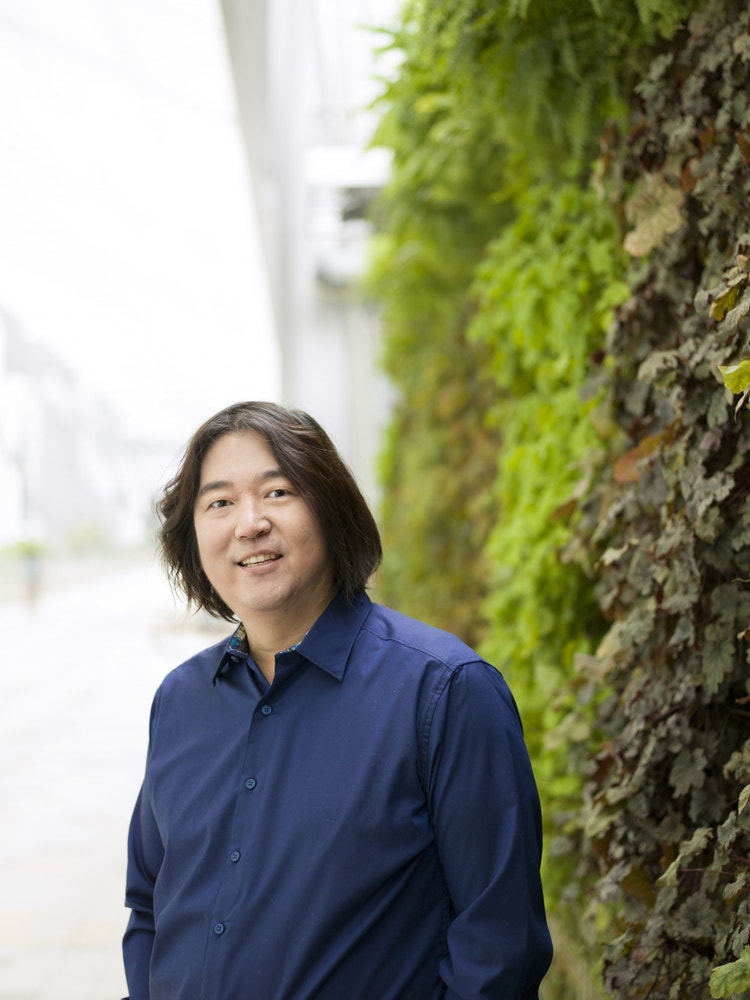Ken Honda Says Happiness Can Bring Money

Money can’t buy happiness, and no one knows that better than financial guru and best-selling author Ken Honda.
“To be free from money worries, you don’t have to be a millionaire,” Honda says. “All you have to do is find out what kind of feeling you attach to money.”
Honda has interviewed and counseled thousands of individuals and couples worldwide and has found that stress and confusion over money is universal. But for most of us, the suggestion to follow our hearts is a terrifying one. How do we bridge the gaping chasm between financial security and living our passion?
That’s why Honda—recently featured in Forbes and on “Good Morning America”—has written his latest book “Happy Money: The Japanese Art of Making Peace With Your Money” (Gallery Books, June 2019).
24Life recently asked Honda for his insights and steps to take toward not just wealth but true financial freedom.
The problem is greater than us
Honda has written 58 personal finance and self-help books. He discovered what he thought was his calling as he greeted clients in his father’s accounting office. Over time, he noticed some clients flourished while others did not.
But it was the impact of a client’s misfortune on Honda’s father, who became an alcoholic, which deeply and sadly impressed upon Honda the far-reaching effects that money can have on happiness.
Honda started his own accounting firm with a goal of success by 30, and he was able to take time off to help raise his infant daughter. Prompted by comments he overheard between a stressed-out mother and her child at the park, he sat down to write a short article containing all of his insights and counsel he’d given clients for prosperity. Twenty-six pages later, he was on his way toward becoming a published author.
The problem, Honda says, is one that is culturally ingrained. “For centuries, we’ve been driven to go for more; ‘more is better,’” he explains. “But the middle class feels it’s losing; all of us feel something is wrong, but the solution is not political. The problem is fundamental—it’s in our culture and our system of finance.”
In interviews Honda has conducted around the world, he hears the same concerns: “You can’t find the right partner. You wonder if you are earning enough to marry. The work you do is OK but not really satisfying.”
Wealthy, middle-class and financially challenged people all feel unhappiness with respect to money: guilt, frustration, shame (at lacking money). Honda has observed the role money-related stress plays in divorce and suicide and concludes that the money “problem” has to be solved before people can feel free to follow their hearts.
The solution starts with one person

Honda set out to find the keys to financial success and happiness and discovered that the starting point is our individual regard for money. “The reason why we have so many fights about money is that we believe in different things,” he explains. “In my books, I talk about money archetypes. Even if you’re brought up in the same family, your sister may become a spender, but your brother becomes a saver, and you become a compulsive moneymaker.”
What’s more, Honda observes, opposites attract. “The saver finds a spender very attractive because the spender knows how to enjoy, and the spender is attracted to a saver because he or she finds stability in that life,” he says. Despite that attraction, it’s not surprising that the conflicting attitudes lead to strife.
Cultural differences can come into play, too. Honda recalls a friend who purchased a handmade wedding gift for another friend—which upset his wife, who was embarrassed that the gift was not more expensive.
Children may grow up observing but not sharing financial values with parents, as well. “Two savers might have a spender, and that scares the parents,” Honda says.
All these scenarios present an opportunity for understanding and compassion that requires no financial exchange at all. “There’s an opportunity for learning lessons,” Honda says. “Savers need to learn how to enjoy life. Spenders have to know how to bring stability to life. Life is all balance.”
Two keys to unlock happiness
But before you sit down for a heart-to-heart with your family, consider the work you can do for yourself first. Honda has two exercises that are simple and powerful.
- Thank your money. Honda credits his mentor Wahei Takeda, often called the Warren Buffett of Japan, for the concept. Honda says Takeda told him, “There’s only one thing you have to do to become wealthy and happy. That is to arigato your money. Thank your money when it comes in and thank the money when it goes out.”Honda continues, “Takeda felt that thanking money was the only thing you need to find your way into financial freedom and happiness. Once you start appreciating money coming in and money going out of your life, you start the cycle of appreciation. And when you focus on money and gratitude about money, you cannot worry at the same time because the human mind can only focus on one thing at a time. If you focus on gratitude that you have money, you cannot worry about money.”After a few weeks of this practice, Honda says, “you realize that you haven’t worried about money for weeks. It doesn’t cost you anything; just appreciate your money.”
- Dream about what you would do. Honda’s second exercise is to imagine what we would do if we were free from money worries. “Those are the things that you should do in your life,” he says. “We are restrictive with money because we are afraid that if we did what we love to do, we would not make a living. So I just want you to start daydreaming about what’s possible.”Honda understands that’s a tall task for some of us. “I realize that if you can solve money issues, you are going to face what’s possible for your life,” he says. But based on his own experience and the marriages and career changes and other choices for the better that his clients have made, Honda is firmly convinced that we can be well and do well.“Life is to be lived fully and to share what you’re born with,” Honda says. “‘Happy Money’ is about how to discover your gifts, follow your heart and make a living.”
Honda’s Happiness Factors

Hobby: Taking a morning or evening walk with my wife.
Happy activity: Sharing what I know that would impact many people.
Measure of impact: Because of me, a lot of couples are born. People start changing their jobs, leaving bad marriages, leaving what doesn’t work for them. I’m a catalyst to support their true calling.
Multiplier effect: If we start sharing what we have, the world would be so different.